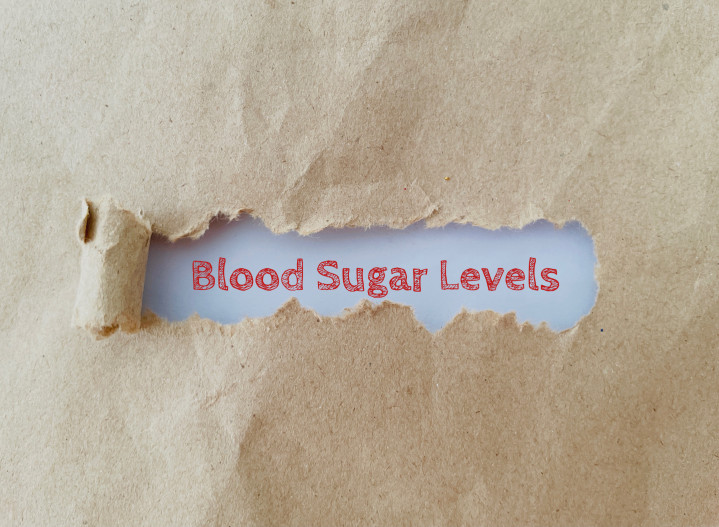How Intermittent Fasting Affect Blood Sugar: Explained Easy
How Is Blood Sugar Metabolised | Effect of Intermittent Fasting On Blood Sugar | Does Fasting Raise Blood Sugar | Intermittent Fasting And Its Impact On Diabetes | Is Intermittent Fasting Safe For Diabetic Patients | Key Takeaways Before You Try Intermittent Fasting
Intermittent fasting is a diet pattern that involves restricting mealtime to a few hours every day and fasting for the rest. Even though intermittent fasting has been there for ages, it has very recently come into the limelight and has become a popular way to lose weight.
There is no doubt that intermittent fasting affects blood sugar. It does have many health benefits, one of which is the benefit for blood sugar and diabetes management.
There is a lot of confusion about intermittent fasting regulating blood sugar levels and how these two components relate to each other. People often ask how intermittent fasting affects blood sugar levels or does intermittent fasting raise blood sugar or is it safe for diabetic people?
If you also have these questions, this article will give you insight into the impact of intermittent fasting on blood sugar, and also clear all your questions.
To understand the effect of intermittent fasting on your blood sugar, it is crucial to know how your blood sugar gets metabolized. When you eat something, it gets digested and is converted into glucose. This glucose is then released into the bloodstream and is to be transported to the cells. The cells get the glucose and convert it into energy, which helps you carry out your day-to-day activities.
When your glucose levels in the blood are high, the pancreas releases a hormone called insulin. The job of insulin is to stimulate the uptake of this blood glucose into the cells to be converted into energy or store it as glycogen for future uses. The insulin works to reduce blood sugar levels.
However, in the case of people who have diabetes, insulin resistance is seen. Insulin resistance is when your muscle, fat, and liver cells cannot respond to insulin to take up glucose. Seeing an increase in sugar levels in the blood, the pancreas makes more insulin to maintain blood sugar levels. People with insulin resistance can fall under the pre-diabetic category, which can also lead to type 2 diabetes if not corrected.
Effect of Intermittent Fasting On Blood Sugar
Studies show that intermittent fasting can help regulate blood sugar and suppress inflammation. However, it should be said that not all research believes in the benefits of intermittent fasting for blood sugar control.
The weight loss that happens due to intermittent fasting effectively maintains blood glucose levels. The restriction of calories that takes place in intermittent fasting results in the lowering of blood glucose levels as well.
So, does fasting lower blood sugar levels? Yes, it does, but this is because of the calorie restriction and weight loss which is indirectly affected because of the restricted eating time.
To know more about achieving weight loss through intermittent fasting read – Intermittent Fasting For Weight Loss: 7 Tips For Best Results.

Does Fasting Raise Blood Sugar?
Some people see that intermittent fasting increases blood sugar in their bodies, usually because of the hormone glucagon. During prolonged fasting, glucagon is produced, leading to an increase in plasma glucose levels in the body.
For otherwise healthy people, this phenomenon can be balanced by producing enough insulin and by the rapid metabolism of glucose. But in people with insulin resistance, we see a spike in blood sugar levels; however, it happens during extended fasting of more than 2 days.
There is another reason why your blood sugar may go up while fasting? It is because there is a drop in the insulin levels which means your counter-regulatory hormones, such as growth hormones, are released. This leads to pulling out the stored glucose from the liver, which is then metabolized. Hence, the spike in blood sugar is from the sugar already present in the body, which needs to be removed.
So, can fasting cause high blood sugar? Yes, it does during prolonged fasting. However, intermittent fasting is perfectly safe during diabetes and should be accompanied with short fasting windows.
Intermittent Fasting And Its Impact On Diabetes
In people who have diabetes, two complications can occur due to the long duration of intermittent fasting;
1. Intermittent fasting causing low blood sugar, or hypoglycemia.
It can happen if you take insulin or diabetes medication and do not eat enough food. This can lead to dropping of blood sugar levels drastically and cause shakiness, chills, dizziness, and other such symptoms.
2. Hyperglycemia is also harmful, where people with diabetes practice intermittent fasting and eat a huge meal at once.
This causes a spike in blood sugar levels and can lead to hyperglycemia. A sudden rise in blood sugar levels can lead to neuropathy, kidney disease, blindness, eye damage, and even heart diseases.
But Is Intermittent Fasting Safe For Diabetic Patients?
Since we have already understood the complications that can happen during diabetes, it is essential to understand that a diabetic person should always consult their doctor or dietitian before beginning to fast. With that said, intermittent fasting, if done right, can immensely benefit people suffering from diabetes.
If you focus on your food intake and fasting intervals, it can lead to weight loss and reduce diabetes medication. Researches indicate improvement in blood insulin levels, less oxidative stress, and decreased appetite. It also indicates that people with diabetes who followed intermittently fasting could reduce insulin intake after a month.
To understand in detail about benefits of intermittent fasting during diabetes, read – Intermittent Fasting And Diabetes: Benefits And Risks.

Key Takeaways Before You Try Intermittent Fasting
Some of the key takeaways from the above before you try fasting include:
Talk to your doctor
The first thing you should do is consult your doctor before starting your fast. Everybody is different, and that is why intermittent fasting may not have a similar effect on you. There are many other ways to improve your overall health, and with some modification, you might be able to practice fasting.
Practice fasting with caution
Diabetes patients have to follow some rules when they fast. You need to be aware of the potential dangers and avoid getting hypo or hyperglycemia. Break your fast with a small meal and take your medication during the eating window as a precaution. So, if you take insulin, take it during the 8 hours of eating rather than 16 hours of fasting. In addition to this, avoid heavy exercise during your fasting window.
Don’t Be Afraid To Break The Fast
If you experience hypoglycemia and see the signs of extremely low blood sugar, do not hesitate to break your fast. Eat something or drink a sugary drink to balance your blood sugar levels.
Want to start intermittent fasting?
Take up our 21-day intermittent fasting challenge that will give you an action plan with a complete guide. Get daily inspiration through messages and emails. You also get access to meal plans and a weekly shopping list. Join our intermittent fasting community and start losing weight today!



